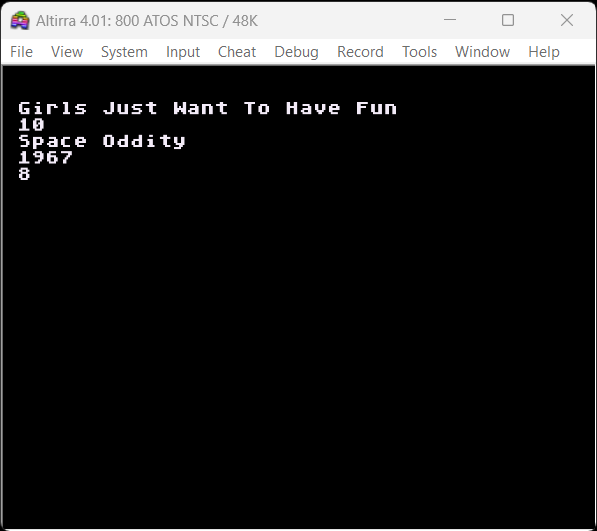ARRAY MANAGEMENT: ACCESSING (1)
This small example will show the basic syntax to define an array and to accessing it. Note how arrays in ugBASIC start at zero. So if we dimension an array with the number 2 we mean an array of two elements: element 0 and element 1.
source
compile
sandbox
issues?
back to examples


